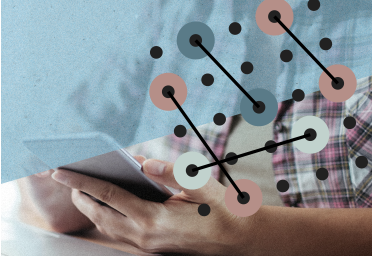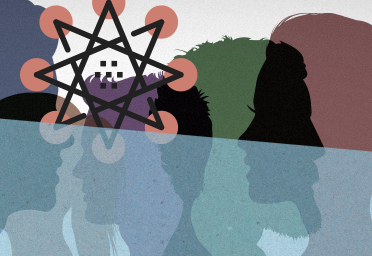All of the online stress management programs included in the m-HELP initiative have been chosen because they are based in science. Over decades, mental health researchers have discovered tried-and-true approaches that reliably help people to cope with anxiety, stress, and depression. We’ve reviewed hundreds of programs to select ones that incorporate this science.
A Scientific Foundation
The members of the m-HELP Scientific Advisory Board (SAB) have already conducted many scientific studies on the effectiveness of online programs for stress management as well as for the treatment of various behavioral health disorders. They have also published some landmark studies on the precision treatment of mental disorders. This new area of research uses large data sets to develop algorithms for matching subsets of patients with a given disorder—say, depression—with the treatment that is most likely to be helpful—say, a certain antidepressant.
Taken together, these two bodies of research provide the scientific foundation for the m-HELP initiative. Below are some of these papers published by SAB members in leading academic journals in the past few years:
Published Research
Kessler, R.C. (2018). The potential of predictive analytics to provide clinical decision support in depression treatment planning. Current Opinion in Psychiatry, 31(1), 32-39. doi: 10.1097/YCO.0000000000000377
Kessler, R., Bossarte, R., Luedtke, A., Zaslavsky, A. and Zubizarreta, J. (2019). Machine learning methods for developing precision treatment rules with observational data. Behaviour Research and Therapy, 120, 103412. doi: 10.1016/j.brat.2019.103412
Kessler, R.C., Bernecker, S.L., Bossarte, R.M., Luedtke, A.R., McCarthy, J.F., Nock, M.K., Pigeon, W.R., Petukhova, M.V., Sadikova, E., VanderWeele, T.J., Zuromski, K.L., Zaslavsky, A.M. (2019). The role of big data analytics in predicting suicide. In: I.C. Passos, B. Mwangi, F. Kapczinski. (Eds.), Personalized Psychiatry: Big Data Analytics in Mental Health (pp. 77-98). Cham, Switzerland: Springer Nature Switzerland AG.
Kessler R., Chalker S., Luedtke A., Sadikova E., and Jobes D. (2020). A preliminary precision treatment rule for remission of suicide. Suicide Life Threat Behavior. 50(2), 558-572. doi: 10.1111/sltb.12609. Epub 2019 Dec 9.
Qiu, H., Carone, M., Sadikova, E., Petukhova, M., Kessler, R.C., and Luedtke, A. (2020). Optimal individualized decision rules using instrumental variable methods. Journal of the American Statistical Association, 00(0), 1-18. doi: 10.1080/01621459.2020.1745814
Schueller, S., Neary, M., O’Loughlin, K., and Atkins, E. (2018). Discovery of and interest in health apps among those with mental health needs: Survey and Focus Group Study. Journal of Medical Internet Research. 20(6):e10141. doi: 10.2196/10141.
Torous, J., Nicholas, J., Larsen, M., Firth, J. and Christenen, H. (2018). Clinical review of user engagement with mental health smartphone apps: Evidence, theory and improvements. Evidenced Based Mental Health. 21, 116-119. doi: 10.1136/eb-2018-102891.
VanderWeele, J., Luedtke, A., van der Laan, M., and Kessler, R. (2019). Selecting optimal subgroups for treatment using many covariates. Epidemiology, 30, 334-341. doi: 10.1097/EDE.0000000000000991
Wu, C.S., Luedtke, A., Sadikova, E., VanderWeele, T.J., Kessler, R.C. (2020). Development and validation of a machine learning individualized treatment rule for patients with first-episode Schizophrenia. JAMA Open Network, 3(2), e1921660. doi:10.1001/jamanetworkopen.2019.21660
More about m-HELP
The m-HELP initiative is designed to link people with the online stress management programs that are best suited to their particular circumstances.
m-HELP was created by a group of internationally acclaimed researchers in the fields of psychiatry and psychology affiliated with leading universities around the world.
The members of m-HELP’s Scientific Advisory Board are often interviewed by major media outlets about their research on online programs that address stress management and other mental health problems.


